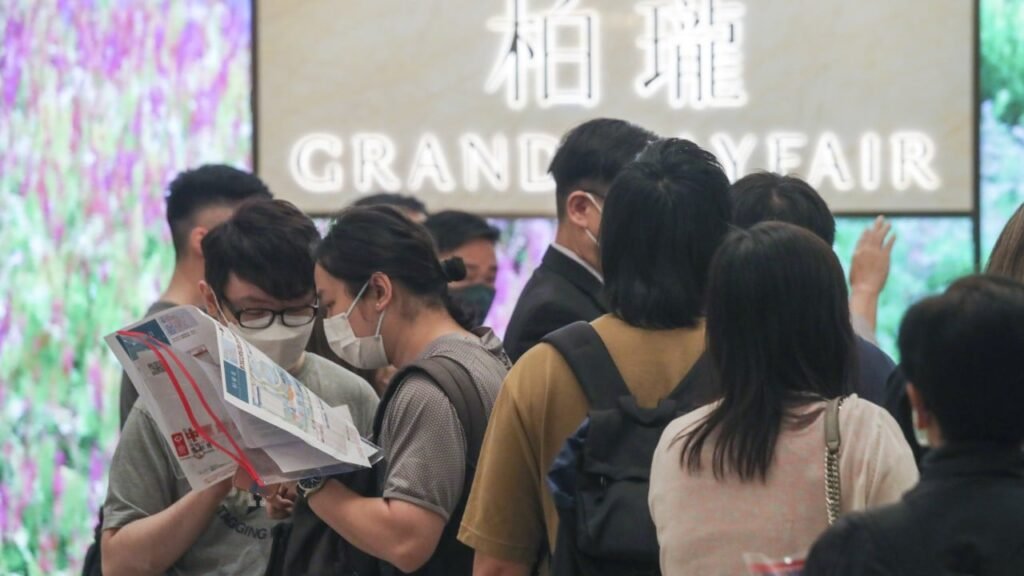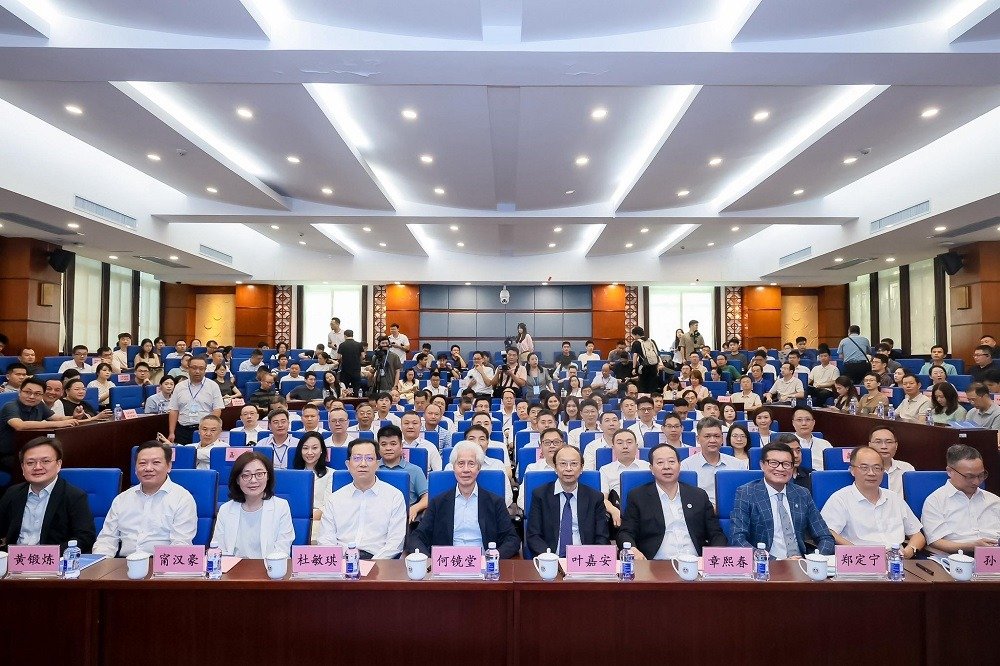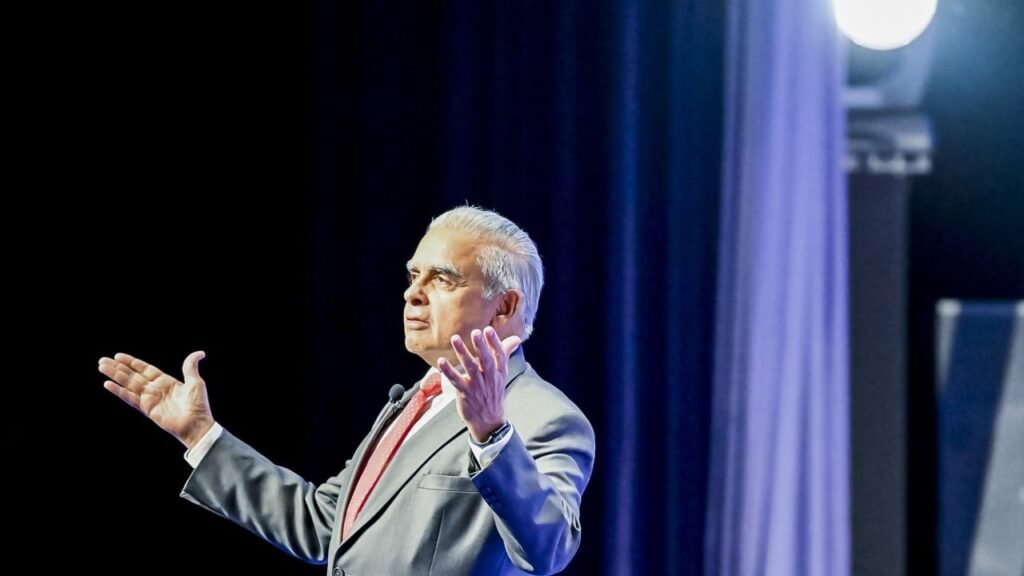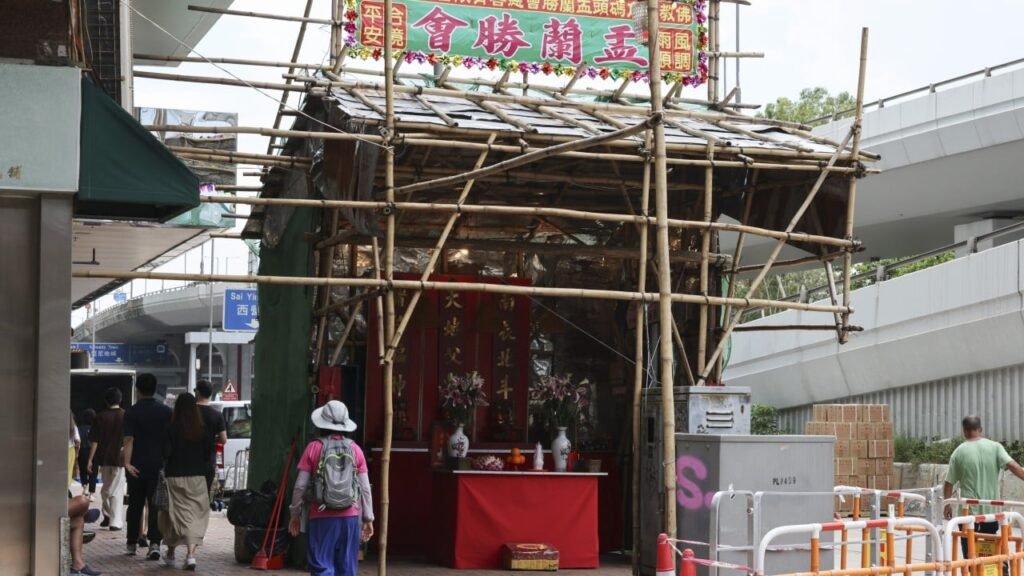An Evergrande commercial complex in Beijing on Jan. 29, 2024.
Greg Baker | Afp | Getty Images
China Evergrande Group was delisted from the Hong Kong Stock Exchange on Monday — an ignominious exit for the former high-flying developer that once epitomized Beijing’s economic rise and later came to symbolize the country’s property bust.
Following its listing in 2009, Evergrande had become one of China’s hottest stocks, with the company’s market cap peaking at $51 billion in 2017. Trading in the company’s shares had been suspended since January 2024 when it received a liquidation order, with its market value falling to just above $280 million, according to LSEG data.
Evergrande, once China’s largest developer by sales, will now be remembered as the world’s most indebted developer with more than $300 billion in debt and whose default set off a broader years-long crisis that dragged on the country’s economic growth.
It was one of the earliest developers that faltered after Beijing rolled out its three-red-line policy in 2021. The policy, which was aimed at reining in aggressive borrowing, triggering a sector-wide liquidity crisis.
China’s housing downturn has stretched into a fourth year, with prices, sales, investment and construction activity faltering across the board, weighing on economic growth.
New home prices in China fell at the fastest pace in eight months in June, dropping 3.2% year on year before recovering slightly to a 2.8% drop in July, while the decline in real-estate-related investments deepened.
Deflating property bubble
Evergrande’s unwinding in the aftermath of its collapse unfolded during a protracted property slump that has dragged on the broader economy, though analysts expect the drag to ease in the years ahead.
“China’s property bubble peaked in 2021 and has been deflating since,” said Andy Xie, an independent economist based in Shanghai. He pointed out that sales volumes of new residential properties has halved over the four years. Prices have halved in smaller cities and major cities’ suburbs and have fallen by as much as 30% in central areas of tier-1 cities, the economist pointed out.
“The adjustment isn’t over. But the economy has absorbed most of the impact already,” Xie added.
“China’s housing market correction remains an ongoing headwind, though we are forecasting less of a drag over the next few years,” said Changchun Hua, chief economist for Greater China at KKR, penciling a drag of 1.5 percentage point on China’s gross domestic product in 2025, down from a dent of 2.5 percentage points in 2022.
The drag will continue narrowing to just 0.3 percentage point in 2027, according to Hua’s estimates.
At a high-level policy meeting last week, Chinese Premier Li Qiang emphasized the need for more effective measures to address the property market and stabilize market expectations. China’s property and construction sector accounted for more than a quarter of China’s GDP prior to Beijing’s crackdown on developers’ excessive debt in 2020.
On Monday, the Shanghai government announced a slew of measures to boost home demand, including allowing eligible families to buy an unlimited number of homes in the outer suburbs and calling for lower mortgage rates. That followed similar easing measures from the Beijing municipal government earlier this month that removed purchase restrictions of homes in the outskirts.
Shares of Chinese developers rallied Monday morning on optimism that Beijing will press ahead with more stimulus to support the housing market, according to William Wu, China property analyst at Daiwa Capital Markets.
‘Flight to safety’
As most private developers have already defaulted and are undergoing debt restructuring, “we are past the peak default wave,” said Leonard Law, a senior credit analyst at Lucror Analytics.
That said, some of Evergrande’s peers may face similar delisting risks, said Christine Li, head of research for Asia-Pacific at global property consultancy Knight Frank. Twenty of such developers have been approved for debt restructuring plans since the start of this year, clearing more than 1.2 trillion yuan ($167 billion) in liabilities, according to Li’s estimates.

Beijing has urged local governments to ensure speedier lending to cash-strapped developers and is reportedly considering a plan to mobilize state-owned companies to take over unsold homes from distressed developers as part of an effort to stabilize the sector.
Although the risk of more developer defaults has subsided, consolidation around state-backed developers appears inevitable as the multi-year crisis has left homebuyers more cautious than before.
“There’s now a clear flight to safety, with purchasers favoring state-owned developers and completed properties over presales,” said Cathy Lu, a credit analyst at Octus, formerly known as Reorg, a financial data company specializing in debt restructuring.
Many of those large developers that are about to be “zombie companies” will eventually be rolled up into the state machinery, said Brian McCarthy, managing principal at Macrolens. He predicts that the state entities will come in and fund the completion of unfinished units.
“The state-owned developers will end up running the entire industry. Policymakers in China are never going to let this bubble approach anything like [what] we saw over the last 15 years,” he said.
Husk of a property empire
In January last year, a court in Hong Kong ordered the liquidation of the Evergrande’s local assets after its creditors filed a petition, appointing Alvarez & Marsal — the firm that helped unwind Lehman Brothers — to undertake the process.
So far, progress has been slow. Overseas creditors have clawed back only a fraction of what they are owed, with most of Evergrande’s assets sitting on the mainland.
Evergrande still has at least hundreds of unfinished projects across the country, with hundreds of thousands of homebuyers waiting for their homes, and a long line of creditors, from businesses in China that supplied materials to Evergrande to bondholders jostling to recoup their losses.
“For Evergrande, home delivery remains the priority,” Octus’ Lu said. Evergrande said it delivered 1.2 million homes in the last four years, with more than 95% of sold units completed, according to state media reports, citing a company representative.
Creditors, however, continue to face uncertain prospects of repayment. While its offshore entity has been in the liquidation process since last year, Evergrande’s massive onshore units are also insolvent, offering little restructuring value, Lu added.
The Hong Kong liquidators said in a filing earlier this month that Evergrande’s debt load was far larger than estimated and any “holistic” restructuring would be out of reach. Evergrande’s debt pile amounts to $45 billion, significantly higher than the $27.5 billion of liabilities disclosed in Evergrande’s financial disclosure in 2022, the liquidators said.
Despite liquidation efforts, overseas bondholders and shareholders are likely to be largely wiped out, said Macrolens’ McCarthy. “For overseas investors investing in China through Hong Kong, you have limited recourse to onshore assets if things go bad.”







